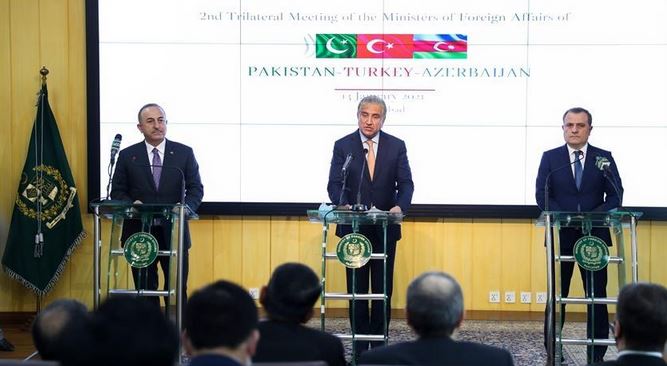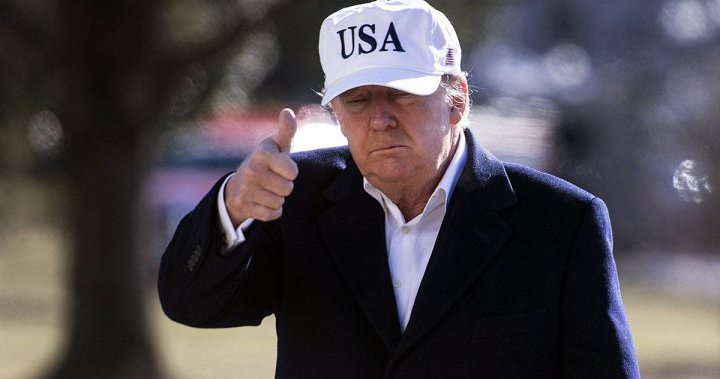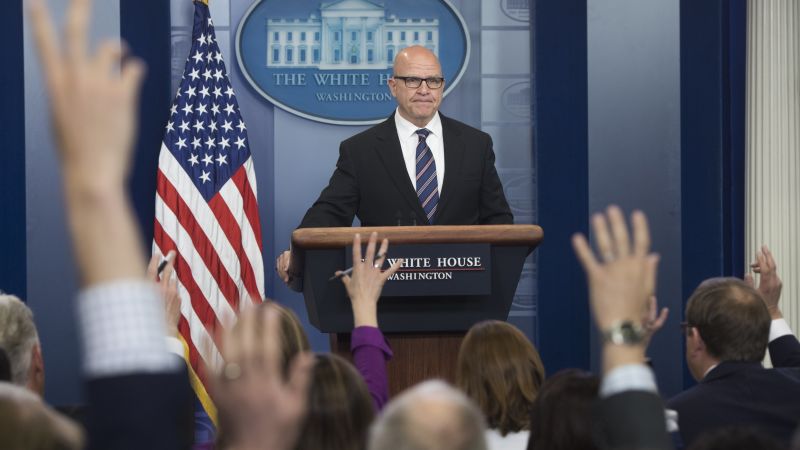India's Trade Relations: A Re-evaluation Of Ties With Pakistan, Turkey, And Azerbaijan

Table of Contents
India-Pakistan Trade Relations: A Complex Landscape
The India-Pakistan trade relationship is undeniably complex, marked by a long history of strained political relations significantly impacting bilateral trade agreements. Understanding this historical context is critical to comprehending the current state of affairs and the potential for future growth.
Historical Context and Political Tensions
The volatile relationship between India and Pakistan has historically hindered the development of robust cross-border trade. Key historical events, such as the partition of India, several wars, and ongoing territorial disputes, have consistently cast a shadow on economic cooperation.
- 1947 Partition: The division of the subcontinent severely disrupted established trade routes and created significant political and economic barriers.
- 1965 & 1971 Wars: These conflicts further exacerbated tensions and led to significant disruptions in bilateral trade flows.
- Kashmir Dispute: The unresolved Kashmir issue remains a major obstacle to improved India-Pakistan relations and consequently, hampers trade liberalization efforts.
These factors have resulted in significant trade barriers and restrictions, including high tariffs, complicated customs procedures, and limited access to each other's markets. Despite the enormous potential for increased trade between the two countries, the current volume remains drastically low compared to what could be achieved. For instance, while the potential for India-Pakistan trade is estimated to be in billions, the current figures are significantly less, highlighting the devastating effects of political obstacles on economic progress.
Opportunities for Enhanced Trade despite Political Challenges
Despite the persistent political challenges, opportunities for enhanced trade between India and Pakistan do exist. Focusing on specific sectors where collaboration could be mutually beneficial could pave the way for increased cooperation.
- Agricultural Products: Both countries possess strengths in different agricultural areas. India could export high-value agricultural products, while Pakistan could supply specific crops and livestock products.
- Pharmaceuticals: India's robust pharmaceutical industry could collaborate with Pakistan's growing healthcare sector, fostering mutual growth.
The utilization of third-party intermediaries could also facilitate trade, mitigating some of the political risks. While significant hurdles remain, recent initiatives like limited cross-border trade in specific sectors offer a glimmer of hope for the future and indicate a potential for future trade growth and regional cooperation. Any progress in this area would unlock substantial economic benefits for both nations.
Examining India's Trade Ties with Turkey: A Balancing Act
Turkey's strategic location, bridging Asia and Europe, gives it significant geopolitical importance, influencing its trade relations with India. Examining India-Turkey trade requires analyzing Turkey's economic strength and its role as a potential trade partner.
Strategic and Economic Significance
Turkey, with its robust economy and strategic location, offers significant potential as a trade partner for India. The strategic partnership between the two nations is further strengthened by Turkey's role in Eurasian trade.
- Economic Strength: Turkey's diverse and relatively strong economy provides a broad range of trade opportunities for Indian businesses.
- Existing Agreements: While some trade agreements exist between the two countries, their effectiveness could be enhanced through further collaboration.
- Flourishing Sectors: Sectors like textiles, pharmaceuticals, and automobiles currently show significant potential for growth in India-Turkey trade.
Challenges and Opportunities for Future Collaboration
Despite the potential, challenges hinder stronger India-Turkey trade ties. Addressing these challenges is crucial for maximizing the benefits of this partnership.
- Trade Barriers: Tariff and non-tariff barriers can still impede the smooth flow of goods between the two countries.
- Competition: Competition from other countries in the region poses a challenge to expanding bilateral trade.
- Regional Connectivity: Improving regional connectivity, including transportation links, is essential to enhancing trade flows.
To improve relations and increase collaboration, both countries should prioritize the reduction of trade barriers, encourage investment opportunities, and strengthen bilateral trade agreements. Joint ventures and investment partnerships could unlock substantial potential for growth, promoting a more robust and mutually beneficial strategic partnership.
India and Azerbaijan: Exploring New Avenues of Trade and Cooperation
Azerbaijan's strategic location in the Caspian region and its significance in energy security for India significantly impact regional connectivity, making it an important trade partner. Examining India-Azerbaijan trade necessitates understanding Azerbaijan's role as an energy supplier and the potential for broader economic collaboration.
Energy Security and Regional Connectivity
Azerbaijan plays a crucial role in India's energy security strategy, supplying energy resources and serving as a key player in regional connectivity initiatives.
- Energy Supplier: Azerbaijan provides India with crucial energy supplies, contributing significantly to India's energy diversification efforts.
- Transportation Corridors: The development of transportation corridors linking India, Azerbaijan, and other Central Asian countries is critical for boosting bilateral trade.
- Energy Cooperation Projects: Joint projects focusing on energy exploration, development, and transportation enhance this strategic partnership.
Expanding Trade Beyond Energy: Untapped Potential
Beyond energy, India and Azerbaijan possess untapped potential across various sectors. Diversifying trade relations will create a stronger and more resilient partnership.
- IT Sector: India's IT sector can offer valuable expertise and services to Azerbaijan's developing digital economy.
- Agricultural Trade: Both countries could benefit from increased trade in agricultural products and technologies.
- Tourism & Cultural Exchange: Promoting tourism and cultural exchange could strengthen people-to-people ties and support broader economic cooperation.
Conclusion: Re-evaluating India's Trade Relations for Future Growth
This analysis of India's Trade Relations with Pakistan, Turkey, and Azerbaijan reveals a complex interplay of historical factors, political considerations, and economic opportunities. While significant challenges remain, particularly concerning India-Pakistan trade, opportunities exist for enhanced collaboration across all three relationships. A strategic reassessment of these relationships is crucial for India's future economic growth and its geopolitical standing. The potential for increased trade and mutually beneficial partnerships is substantial, particularly in sectors beyond traditional energy and resource exchange. The future prospects hinge on addressing political obstacles, enhancing regional connectivity, and fostering stronger bilateral agreements. Understanding the nuances of India's Trade Relations with these nations is paramount. We encourage readers to delve deeper into the specific dynamics with each country, as this knowledge is essential for both policymakers and businesses navigating these complex and potentially lucrative relationships. Further research into India's Trade Relations will reveal even more opportunities for growth and collaboration.

Featured Posts
-
 Mlb Daily Fantasy Baseball May 8th Picks Sleepers And Avoid
May 18, 2025
Mlb Daily Fantasy Baseball May 8th Picks Sleepers And Avoid
May 18, 2025 -
 Bowen Yangs Argument For Cursing On Snl A Necessary Evolution
May 18, 2025
Bowen Yangs Argument For Cursing On Snl A Necessary Evolution
May 18, 2025 -
 Osama Bin Laden Documentary Why Netflix Doesnt Stream It Yet
May 18, 2025
Osama Bin Laden Documentary Why Netflix Doesnt Stream It Yet
May 18, 2025 -
 Springsteens Treasonous Comment Sparks Fierce Response From Trump
May 18, 2025
Springsteens Treasonous Comment Sparks Fierce Response From Trump
May 18, 2025 -
 Damiano David Embarks On Solo Musical Journey
May 18, 2025
Damiano David Embarks On Solo Musical Journey
May 18, 2025
Latest Posts
-
 Stephen Miller A Former Colleague Exposes His Conduct
May 18, 2025
Stephen Miller A Former Colleague Exposes His Conduct
May 18, 2025 -
 Stephen Miller A Contentious Figure Considered For Top Security Post
May 18, 2025
Stephen Miller A Contentious Figure Considered For Top Security Post
May 18, 2025 -
 The Trump Administration And Stephen Millers Possible Nsa Role
May 18, 2025
The Trump Administration And Stephen Millers Possible Nsa Role
May 18, 2025 -
 Is Stephen Miller The Right Choice For A National Security Position
May 18, 2025
Is Stephen Miller The Right Choice For A National Security Position
May 18, 2025 -
 Stephen Millers Potential Appointment As National Security Advisor
May 18, 2025
Stephen Millers Potential Appointment As National Security Advisor
May 18, 2025
